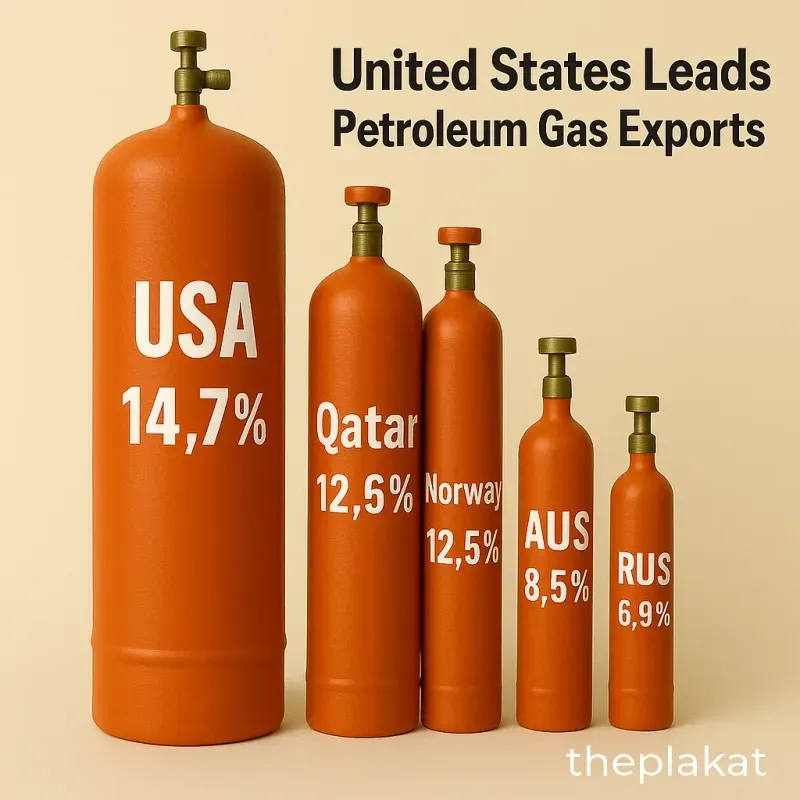Published
in Economy
In 2023, the United States became the top exporter of petroleum gas, setting the stage in the global energy market. Other prominent contributors include Qatar and Norway.
According to data for 2023, the United States accounted for the largest share of petroleum gas exports worldwide, with 14.7%. Its extensive reserves and technological advances have cemented its leading position in the industry.
Qatar and Norway are also key exporters, each contributing over 12% to global exports. Their strategic locations and state-of-the-art infrastructure have enabled them to efficiently serve international markets.
Australia and Russia stand out as significant players, with exports of 8.5% and 6.9% respectively. These nations continue to expand their market share through investments in exploration and production technologies.
Beyond these major exporters, there exists a pool of nations contributing smaller shares. Although under 1%, when combined, these 'rest' countries form a noteworthy part of the total market, highlighting diverse global involvement.
Petroleum gas serves various purposes, from powering engines to functioning as industrial feedstock. Its global demand reflects its versatility and the pivotal role it plays in energy security and economic resilience.

The United States leads the petroleum gas exports, holding a 14.7% share of the global market.
Petroleum gas is used for electricity generation, heating, and as a raw material in various industries. It's essential for transitioning to cleaner energy alternatives.
Individually, smaller countries' shares may be less than 1% each, but collectively they contribute to stabilizing the market and ensuring a competitive energy landscape.